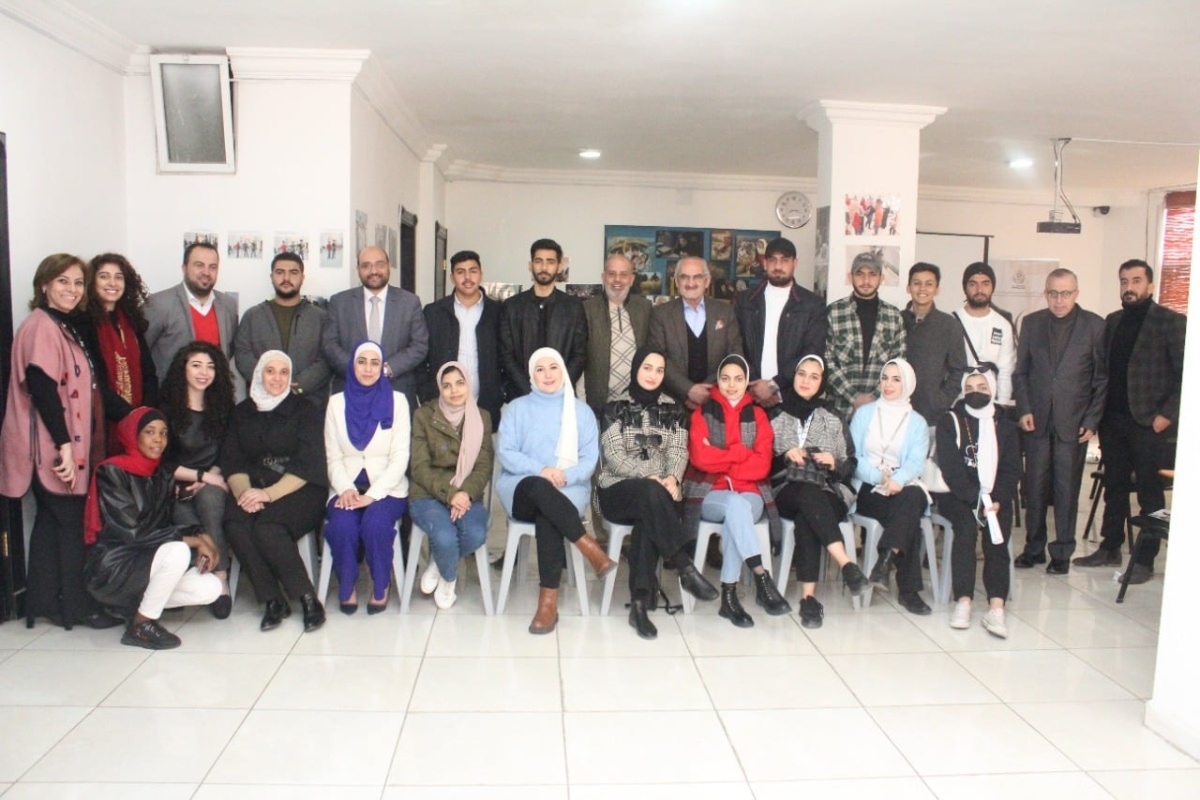Zarqa city is the industrial capital of Jordan and Zarqa governorate is the third largest in the kingdom. But the fact that it hosts the most important factories and companies in the country does not reflect in the life of its residents. Poverty and unemployment are increasing, services are poor and there is no development. Despite that, Zarqa youth adhere reject the idea of emigration and cling to their mother tongue, perhaps because most of them are only proficient in it. English started being taught in primary classes in public schools only recently, and few families in Zarqa can afford to send their children to private schools.
Zarqa’s youth stay put in their homeland and refuse to emigrate is the opinion of the majority of youth who attended the “Dialogue of Generations” series session in Zarqa. The series was organized by Al Nahda Cultural Forum and Al Nahda Youth Network of the Arab Renaissance for Democracy and Development (ARDD) in cooperation with NAYA Community Network; it included the screening of two movies, “The land is inherited as language” and “I intend to emigrate”, produced by the Cultural Committee of Al Nahda Youth Network in collaboration with artist Zuhair Al Nubani to introduce the issues of Arabic language and immigration, and open a dialogue with young people in the governorates of Jordan, starting with Karak. Zarqa was the second location for the series which will move to cover all Jordanian governorates.
“We do not want to emigrate and leave our homeland; here they did not teach us how to manage our affairs, so how would we manage them in exile? We just want the decision makers to hear us and know our problems,” one of the young men participating in the discussions is heard commenting in the video “I intend to emigrate”.
He may also be heard in the video “The land is inherited as a language” saying: “As for our Arabic language, we will not neglect it because no one is going to neglect his entity and identity”.
ARDD wishes to communicate and discuss through the Dialogue of Generations series, is that all stakeholders, but particularly the decision makers, should listen to the youth, engage in dialogue with them, and stay attuned to reality, as only a positive engagement with issues that preoccupy the street can bridge the gap between decision makers and citizens. Dialogue is the most effective way to diagnose and solve problems.
In this context, one of the young women who attended the session said that outside one’s homeland one is in exile even if one lives in prosperity, and that containment cannot be found abroad, adding that young people have a duty to improve the conditions in the homeland, just like governments have a duty, by seeking change through active political participation, making their voices heard, solidarity, and the unified efforts of young people who need to communicate their concerns and aspirations to decision makers.
The participants emphasized that If a large number of young people still want to emigrate, it is because they have no hope that change will happen and because they feel they grow old without any prospect for progress in their lives.
This feeling of despondency prompts ARDD to exert constant efforts to warn against the danger of migration, to embrace the youth, provide them with platforms and networks on which they can make their voices heard, and involve them in drawing up their own policies that may help prevent brain drain, especially since marginalizing the youth, keeping them unemployed, and downplaying the importance of their civic participation weakens their sense of belonging and their conviction that a renaissance of Arab societies has at the basis the promotion of the Arabic language as a common denominator.
Nubani stressed that there is a cultural attack targeting the Arab heritage and history, and seeking to alienate Arabs from their culture and roots. He said that holding fast to the Arabic language is crucial to preserving the Arab identity, and stressed the need to teach students noble values such as honesty, sincerity, loyalty, and belonging. He also urged young people to work to effect positive change in society through active participation in municipal councils and parliamentary elections and electing those they see as best equipped to fulfill their aspirations and make Jordan prosperous and sophisticated.
Emigrating for a better life may cross people’s minds. Nubani wrote a post on his Facebook page in which he said: “I intended to emigrate.”. This gave the idea for the video that for discussions about emigration, which was preceded by the video “Land is inherited as language”.
Migration and sticking to the Arabic language intersect. The hope is that the youth, who are pillars of change, will neither emigrate nor forget their mother tongue. If they believe in themselves and their ability to change, and do change, they can change the country for the better.
Decision makers must listen to the youth, hear their Arabic-speaking voices and pain, and realize that the future of the country lies in the able hands of young people who do not want to leave their country but to see it an ideal place.


